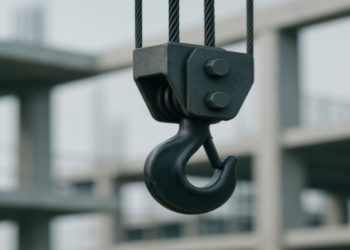All homeowners take pride in their properties. However, regardless of how much love and care you put into your property; home emergencies can happen when you least expect them. From something as small as a leaking tap to serious things like a kitchen fire, you must act immediately both to protect yourself and your property.
Here are some of the most common home emergencies and the steps you must take to sort out the problem as quickly as possible.
Burst and Broken Pipes
Burst and broken pipes typically occur during the winter months. When temperatures dip, this can cause your pipes to freeze and cause problems. Your home will normally have the main water valve. This is normally situated close to your boiler which controls the flow of water. If there’s a leak, you must turn off the valve immediately to stop costly water damage.
It’s wise for all homeowners to regularly check their pipes. If you find a leak or have any concerns, you should contact a professional straightaway to get it sorted. A professional may advise you to get pipe insulation to stop them from freezing during the colder months.
Faulty Boiler
The boiler plays a major role in all households. Your boiler is there to provide heat and warmth for you and your loved ones. If you go to switch on your central heating and find no heat is coming out, it’s time to look at your boiler. For those who have a boiler that’s been in place for many years, it may stop working as it should. There are all kinds of warning signs that could indicate you have a faulty boiler. These include strange noises and smells.
If your boiler is faulty or breaks down when you least expect it, it’s wise to have home emergency cover in place. This will mean you won’t have to pay out tons of money to get it fixed or replaced. The Federation of Master Builders have a guide on the best home emergency cover to take out. They compare providers to help you find appropriate cover for your home.
Overflowing Toilet
An overflowing toilet is one of the most common home emergencies. Understandably, it’s not one we like to think of ever happening, but an overflowing toilet is more common than you think. Whatever the cause for it, a toilet normally overflows when it cannot stop running or drain properly. To begin, you should turn off the valve at the back of your toilet near the wall.
Next, you should mop up any water before it causes long-lasting damage. Finally, have a look to check what the cause of the issue is. While your first thought may be to get the plunger out to fix the problem, if you do this to no avail, it’s time to call in a plumber. They will advise you on what steps to take to minimise the risk of your toilet overflowing again.
Kitchen Fire
We all use our kitchen each day. Whether you’re a real foodie and enjoy being behind the hob or making something quick and easy, kitchen-related emergencies rank highly, especially fires, with two-thirds occurring because of cooking. If a grease fire takes hold, it’s essential you avoid using water to put it out. This will only scatter the grease around and make the situation worse.
There are things you can do to avoid kitchen fires from happening in the first place. Firstly, never leave the kitchen while something is cooking. Make sure to remove all combustible materials from the cooktop too. Ensure everyone in the household follows suit and is aware of the dangers lurking in the kitchen. If a kitchen fire strikes, make sure everyone evacuates the home immediately and dial 999.
Power Outage
Some home emergencies are totally out of your control, such as a power outage. If this happens in your area, you may not be left with any electricity. If a power outage strikes during the night, make sure to pull out your phone which can be used as a guiding light, and ensure everyone is safe. You should take a look outside to check whether nearby properties and streetlights have been affected.
One of the best things you can do is to purchase a power generator. This will give you electricity while the power outage gets fixed. For those that don’t have one, there are some plans you need to put into place, especially if the outage is going to last several hours. This includes putting fridge and freezer perishables on ice.
Mice or Rat Infestation
Many of us see mice and rats as cute and harmless creatures. However, if they take over your home, that’s a whole other story. There are warning signs to look out for which could signal you’ve got an infestation on your hands. To start, shine a light on the finer inches both around and inside your home. There are tell-tale signs that will confirm a rat or mice infestation. These include droppings or signs of chewing.
To prevent further rodent problems, you should cover any crevices with a wire mesh or fast-drying sealant. Unfortunately, your sole efforts may not yield the results you want. If you do the above and find the situation is getting worse, it’s time to contact your local council. They can come out and identify the infestation and take appropriate measures to solve the problem.
Ceiling Leaks
If your ceiling is dripping, water damage can quickly occur and be costly to fix. To temporarily manage water damage, you should gather buckets or plastic sheets that can be placed underneath where the leak is coming from. Climb into your loft space to establish the root cause of the leak. You may find the leak isn’t the only problem, so you need to stay patient.
You should call in an experienced professional if you cannot identify the cause of the leak. In the meantime, prepare to patch and repair the ceiling. This kind of home emergency needs to be addressed quickly. This is because if you ignore the problem and hope for it to go away, extensive damage can take hold which can be a nightmare to fix.
Ant Infestation
If you’re not the biggest fan of creepy crawlies, we appreciate an ant infestation is the stuff nightmares are made of. When you notice a trail of ants, it’s time to thoroughly clean everywhere they have been. You can use a vinegar spray that gets rid of their trail scents. Next, look at your windows and doors for any gaps and cracks. These must be sealed straightaway.
If you have difficulty narrowing down where the ants are coming from, it may be wise to set up ant traps. You may have a nearby ant nest that you cannot tackle on your own. Therefore, calling up a professional is advised. Moreover, you can also consider contacting these experts for regular pest control measures to prevent such infestations. Look for professional Phoenix Pest Control services, or in place near you, to find solutions that can be tailored to keep your home ant free. Early intervention can be just as much necessary to save you from the hassle and stress of dealing with a full-blown infestation.
Emergencies take different forms depending on where you live. When a home emergency strikes, it’s normal to freeze up and become frustrated. However, the quicker you act and solve the issue, the better. Knowing the most common household emergencies and what actions to take should provide some solace if you ever find yourself in a similar situation.
Make sure you have home emergency cover in place for these scenarios. That way, you can be confident the issue can get sorted out without having to spend a fortune.


![7 Best POS Software in the UK [2026 Edition]](https://todaynews.co.uk/wp-content/uploads/2026/02/7-Best-POS-Software-in-the-UK-2026-Edition-360x180.png)










































































